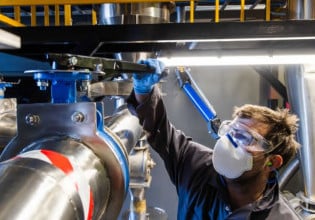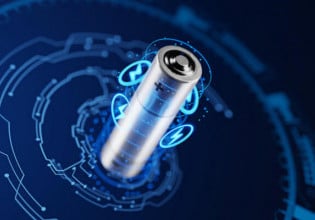NRG EV Services LLC (EVgo) has entered into a Memorandum of Understanding (MOU) with the University of California, San Diego (UCSD) to help support developments in sustainable energy technology. The agreement formalizes an already strong collaboration focusing on the intersection of electric vehicles and energy storage. EVgo is leading two projects at the university.
In the first project, EVgo has constructed a site for assessing how owners of electric vehicle DC charging sites can leverage solar, battery storage, and control systems to mitigate site host demand charges and provide services to the grid.
In the second project, EVgo will begin operating a fleet of bidirectional electric vehicles from Nissan and Honda, including a modified version of the Honda Accord Plug-in Hybrid, to test applicability of vehicle-to-grid technology for California. This vehicle-to-grid initiative builds off of EVgo’s ongoing collaboration with the University of Delaware. In 2013, EVgo and the University of Delaware, working with PJM Interconnection, brought online the world’s first project where electric vehicles served as an official resource on a power grid.
"Vehicle-to-grid technologies have the potential to reduce the total cost of owning a plug-in vehicle, while enabling higher concentrations of renewable energy on the grid,†said Steven Center, vice president of the Environmental Business Development Office and Product Regulatory Office at American Honda. “We look forward to working with NRG and UC San Diego to accelerate the development of this technology.â€
“As the global leader in electric vehicle sales, Nissan is researching ways to integrate the all-electric LEAF into homes, buildings and power grids to unlock new value that could provide future benefits to customers, businesses and utility companies alike,†said Ken Srebnik, Corporate Strategy, Nissan North America. “With projects such as this collaboration with UC San Diego and EVgo, Nissan can gather valuable insights to ensure that our vehicles are ready when similar programs move beyond demonstration and are commercially deployed.â€
The energy resources from both projects will feed into UC San Diego’s microgrid, considered one of the most advanced microgrids in the world. Serving more than 45,000 people, the microgrid generates more than 85 percent of the electricity used on campus annually and saves the university more than $8 million a year in power costs. The microgrid is an integrated system of energy sources – including solar, a fuel cell and a cogeneration plant – and energy storage along with the software that controls each system.
As part of the agreement, EVgo is funding UC San Diego faculty and staff to support the projects’ physical installations as well as EVgo’s research, development and demonstration objectives.
“The integration of renewable energy into the mainstream is one of the keys to helping the State of California meet its aggressive future energy goals,†said Arun Banskota, President, EVgo. “EVgo has a history of innovation and cooperation with academic leaders in this space – and valued automaker partners such as Nissan and Honda – and we will continue to lead through our actions like this agreement with UC San Diego.â€
“We are pleased to partner with EVgo on this important endeavor,†said Gary C. Matthews, UC San Diego vice chancellor of Resource Management and Planning. “This is an excellent opportunity to build on efforts to reduce the carbon footprint of the campus while supporting the state’s clean energy goals.â€
This collaboration is an opportunity to explore ties between zero emissions vehicles, the increasing use of energy storage, and the integration of renewable energy into the distribution grid. The increasing adoption of these technologies will have public health benefits, including for low-income communities.






